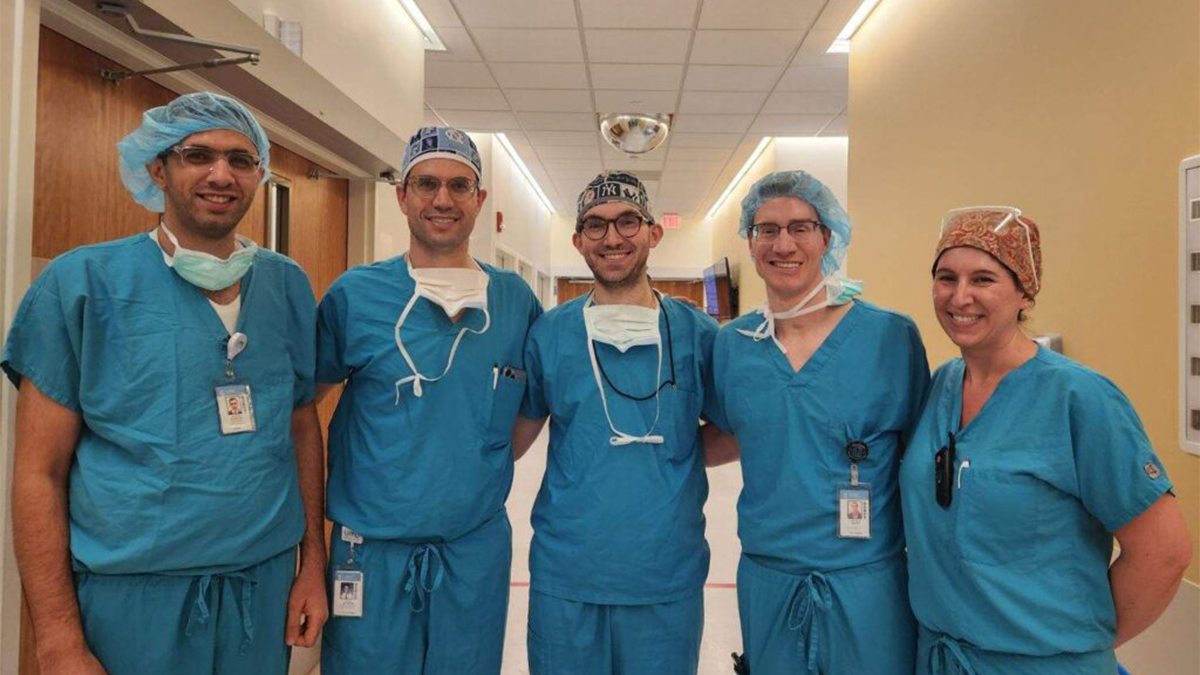New procedure restores vision
UNC School of Medicine surgical team is changing the lives of patients with a rare eye condition.

For the first time at UNC Hospitals, a surgical team has successfully performed a procedure to treat neurotrophic keratitis. This rare eye condition causes loss of sensation to the cornea and can lead to permanent vision loss if left untreated.
“It’s a life-changing procedure,” said Dr. Matthew Miller, director of the UNC Facial Nerve Center and assistant professor of otolaryngology/head and neck surgery at the UNC School of Medicine. “It not only restores sensation in their eyes, but it can prevent and even reverse vision loss.”
This procedure, called corneal neurotization, fills an important access gap, as the UNC-Chapel Hill team is the only one performing the surgery in the states of North Carolina, South Carolina and Virginia. There are just 20 to 30 groups performing corneal neurotization in the United States.
What is neurotrophic keratitis?
The cornea, the clear outer layer at the front of the eye, plays a few pivotal roles for the overall health of the eyeball. Much like the windshield system of a car, the cornea helps protect the inner structures of the eye and keeps the surface of the eye clean and moist. When debris lands on the surface or it begins to dry out, the cornea triggers the blink reflex. Blinking helps to moisturize the eye and sweeps off harmful debris and bacteria.
Neurotrophic keratitis, which affects about 5,000 to 10,000 people in the United States, occurs when the nerves that serve the cornea are damaged. The most common causes of the disease are trauma to the eye, infectious diseases, brain tumors and brain surgery. With its nerve supply cut off, the cornea is unable to keep itself moist or maintain a healthy architecture, causing ulceration, scarring and eventually a permanent loss of vision.
“If you lose your blink reflex, your cornea can become unhealthy, dry, and very inflamed,” said Dr. Daniel Rubinstein, assistant professor of ophthalmology and oculofacial plastic surgeon on the case. “But you can’t feel the pain or dryness. Over time, the outermost layer of the cornea can slough off and cause ulceration and scarring, which impairs your vision.”
In the most severe cases, the affected eye needs to be removed to prevent widespread infection and further damage to other structures.
The goal of the corneal neurotization surgery is to transfer a nearby healthy nerve to the damaged cornea to restore its sensation. After approximately six months, the patient may start to notice improved sensation and, ultimately, vision. The healing process is slow but life changing for patients.
The surgery’s minimally invasive nature is especially important for patients because it reduces scarring on the face, numbness and other potential side effects.
“Our faces are our daily life. The last thing you want to do is create an overly visible scar to create another reminder of the traumatic experiences of their past,” Miller said.
Procedure unique to Carolina
Performing the complex procedure requires tight-knit collaboration among operating room nurses, technical staff, coordinators and, in this case, three surgeons: Miller, Rubinstein and Dr. Hussam Banna, ophthalmologist and assistant professor of ophthalmology at UNC School of Medicine.
“It’s pretty rare to have three surgeons operating on the same case, coordinating, and simultaneously taking care of the same patient,” said Rubinstein. “This kind of cooperative care for a patient is rather unique to UNC. We are incredibly grateful to have received so much support from the hospital system and the institution to perform such an innovative, life-changing procedure for these patients. We look forward to continuing our collaboration to offer this treatment to any patient that might benefit.”







